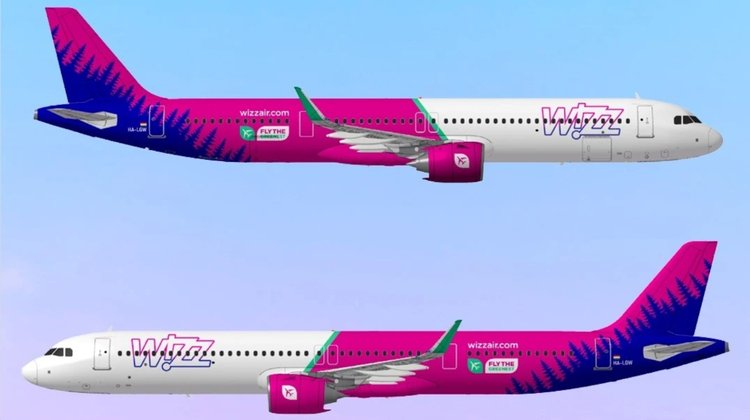Wizz Air aims to power 10% of its flights with sustainable aviation fuel by 2030
07:09 - 12 April 2024

Wizz Air, Europe’s fastest growing and most environmentally sustainable airline globally, has announced its new aspiration to power 10% of its flights with sustainable aviation fuel (SAF) by 2030.
This new target marks a significant step in Wizz Air’s sustainability strategy, and builds on its ongoing investments in SAF development. To achieve the new goal, the airline is also calling for wider industry action to boost SAF production, urging policymakers to address current barriers to SAF deployment at scale.
The milestone was announced during a press conference alongside Firefly, an innovative UK-based biofuel company. Wizz Air has supported Firefly since 2023, and their partnership will allow the airline to supply up to 525,000 tonnes of SAF over 15 years to its UK operations from 2028.
The new aspiration further strengthens Wizz Air’s position as an industry leader in sustainability and will drive its commitment to reducing its carbon emissions per passenger/km by 25% by 2030. The airline will continue to pursue wider sustainability initiatives, including its ambitious fleet renewal plan and efficient, low-fare operations. The airline uses the latest technology aircraft, and prioritises high seat density and load factors to ensure its current operations are as sustainable as possible.
Wizz Air leads the aviation industry with the lowest carbon emission per passenger/km among its competitors and remains committed to significantly reducing its CO2 intensity by 2030. In 2023, Wizz Air achieved its record low annual average CO2 intensity result, which amounted to 51.5 grams per passenger/km, a 6.8% reduction year-on-year.
Yvonne Moynihan, Corporate and ESG Officer at Wizz Air, said: “Wizz Air celebrates two decades of transformation this year, transitioning from a small airline into a global leader of sustainable aviation and affordable travel. Alongside fleet renewal and operational efficiency, sustainable aviation fuel (SAF) plays a crucial role in reducing carbon emissions from aviation. Our investment in Firefly, which has the potential to reduce our lifecycle emissions by 100,000 tonnes CO2-eq per year, underscores our commitment to mainstream the use of SAF in our operations by 2030. However, achieving our aspiration requires a significant ramp-up of SAF production and deployment. Therefore, we call on policymakers to address barriers to SAF deployment at scale by incentivising production, providing price support, and embracing additional sustainable feedstocks for biofuel production.”

